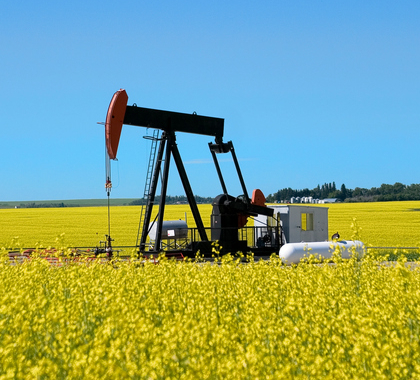Despite mounting opposition from the public, Mississippi legislators have repeatedly pursued increasing the state’s gasoline tax to fund road construction and repair. While supporters of a gas-tax hike argue Mississippi’s low tax gas tax rate leaves room for an increase, gas taxes at any level have become increasingly ineffective at generating revenue for infrastructure projects.
Increasing the tax on the sale of motor fuel increases the cost of transportation, which harms all consumers, especially low-income families. Gas taxes are designed by most national and state governments to raise revenue to pay for improvements to transportation systems, which often include roads, bridges, and airports. In recent years, however, governments have increasingly diverted funds from transportation expenditures, their intended purpose, to help balance budgets or fund unrelated projects.
According to the Mississippi Department of Transportation, the state faces an annual transportation funding shortfall of $400 million, which it says is needed to cover necessary projects.
Most Mississippians place a high priority on improving the state’s transportation system but do not agree increases in the state’s gas tax are necessary. According to a recent poll conducted by Millsaps College in Jackson and by Mississippi-based Chism Strategies, conducted from September 14–18, 27 percent of respondents believe “fixing roads and bridges” should be the top priority of the state’s elected officials, but 72 percent of those polled opposed increasing the tax on gasoline.
The public’s instincts on gasoline taxes is correct. Mounting evidence shows gasoline levies are an ineffective, regressive form of taxation and that they have increasingly left transportation systems shortchanged. In recent years, the rise of fuel-efficient cars has decreased motor-fuel-tax coffers and disproportionately shifted the burden to low-income drivers, a group that typically owns older, less-fuel-efficient vehicles.
Wendell Cox and Ronald Utt argue gas taxes have a stronger effect on lower- and middle-income families than they do on the wealthy. The tax could also cause low-income families to drive less, which could reduce employment options. Americans for Prosperity estimates lower gas prices amount to approximately $100 in additional spendable income per month for an average family, which means the recent nationwide drop in gas prices could potentially lead to an additional $100 billion of economic growth.
The main problem with transportation funding is poor spending practices, not a lack of revenue. Far too many dollars are spent on projects unrelated to roads, such as bike paths and museums. If gas taxes are intended as a user fee, gas-tax dollars should be spent on roads alone. In The Wealth of Nations, Adam Smith argues correctly when infrastructure spending is funded by user fees and decentralized, new construction occurs only when market demand justifies it.
A tax hike would raise prices on goods and services throughout the economy, not just on gasoline, because virtually all consumer goods are transported using gasoline-powered transportation. Businesses will simply pass the added costs on to consumers.
Mississippi legislators should explore more modern and efficient ways to fund road construction and traffic infrastructure, such as privatizing roads and establishing toll systems. In several cities, transportation agencies are using congestion pricing – varying toll prices based on congestion – to manage demand and limit traffic problems.
The following documents provide additional information about how motor-fuel taxes are applied and the impact they have on states’ economies.
Alternatives to the Motor Fuel Tax
https://heartland.org/publications-resources/publications/alternatives-to-the-motor-fuel-tax?source=policybot
This report, prepared by the Center for Urban Studies at Portland State University and submitted to the Oregon Department of Transportation, evaluates potential alternatives to motor-fuel taxes. The report also identifies the economic and technological problems that must be addressed when designing alternative revenue sources.
Designing Alternatives to State Motor Fuel Taxes
https://heartland.org/publications-resources/publications/designing-alternatives-to-state–motor-fuel-taxes?source=policybot
Writing in Transportation Quarterly, Anthony M. Rufolo and Robert L. Bertini consider the future of motor-fuel taxes as more fuel-efficient vehicles become available. They also report on the economic effects of road pricing as a substitute for fuel taxes.
Paying at the Pump: Gasoline Taxes in America
http://taxfoundation.org/article/paying-pump-gasoline-taxes-america
Jonathan Williams argues gas taxes can be an effective means of funding transportation improvements. In many cases, however, governments exploit the taxes for political reasons, spending them on projects unrelated to roads and other transportation improvements.
State Motor Fuel Taxes: October 2017
http://www.api.org/oil-and-natural-gas/consumer-information/motor-fuel-taxes
The American Petroleum Institute documents each state’s current motor-fuel taxes (both gasoline and diesel).
Reconsider the Gas Tax: Paying for What You Get
https://heartland.org/publications-resources/publications/reconsider-the-gas-tax-paying-for-what-you-get?source=policybot
Jeffrey Brown of the University of California–Los Angeles notes the gasoline tax was created as a user fee to raise money for roads, but many politicians and the general public seem to have lost sight of this purpose and lump it together with other unpopular taxes. The challenge for policymakers, Brown argues, is to restore the connection in the public’s mind between the tax and the roads it should provide.
Research & Commentary: Congestion Traffic Pricing
https://heartland.org/publications-resources/publications/research–commentary-congestion-traffic-pricing?source=policybot
Congestion pricing, an alternative to gasoline taxes, uses market principles to address traffic congestion. Under congestion pricing, operators of a road charge a variable price based on congestion, allowing the operator to manage demand and limit congestion. Heartland Senior Policy Analyst Matthew Glans examines several proposals for implementing pricing systems to alleviate traffic congestion.
Fuel Taxes, Tolls Pay for Only One-Third of Road Spending
https://heartland.org/news-opinion/news/fuel-taxes-tolls-pay-for-only-one-third-of-road-spending?source=policybot
Joseph Henchman of the Tax Foundation finds highway user taxes and fees made up just 32 percent of state and local spending on roads. Financing for the rest of the projects came out of general revenues, including federal aid.
Raising Gas Taxes Won’t Fix Our Bridges
https://heartland.org/publications-resources/publications/raising-gas-taxes–wont-fix-our-bridges?source=policybot
In the aftermath of the I-35 bridge collapse in Minneapolis, Minnesota, Adrian Moore of the Reason Foundation argues increasing fuel taxes should not be the only response to state transportation funding problems. Moore wrote, “First we must examine how we spend transportation dollars now. Then we maximize the value out of those dollars. Finally, the last step is to address the need for additional revenue.”
Nothing in this Research & Commentary is intended to influence the passage of legislation, and it does not necessarily represent the views of The Heartland Institute. For further information on this and other topics, visit the Budget & Tax News website, The Heartland Institute’s website, and PolicyBot, Heartland’s free online research database.
The Heartland Institute can send an expert to your state to testify or brief your caucus; host an event in your state, or send you further information on a topic. Please don’t hesitate to contact us if we can be of assistance! If you have any questions or comments, contact John Nothdurft, Heartland’s director of government relations, at [email protected] or 312/377-4000.




